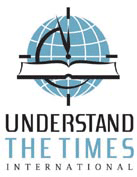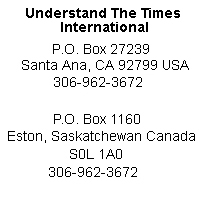|
“We are on a Pilgrimage of Justice and Peace. We are in the one ecumenical movement together,” said Tveit. We are seeking the visible expression of our unity.” In our time, he added, we too “are particularly called to find new expressions of our unity in Christian solidarity. This solidarity is a way to just peace,” a way to “solidarity with all, regardless of faith.”
Tveit added: “This consultation is one of the means by which we are seeking to give further form and content to the Pilgrimage of Justice and Peace, and to determine how we might practically travel together on this journey.” Tveit concluded, “Just peace in a comprehensive sense requires that just peace be established as an end of armed conflicts. Christians are called to be peacemakers and to build just peace. That means that we need to be peace builders, building the Shalom/Salaam in the wider and deeper sense.“ Rev. Dr Anders Wejryd, Archbishop emeritus and Europe president of the World Council of Churches, underlined the message: “Religion is dangerous – and wonderful. Religion can let lose the best and the worst in humankind. Maybe it is not so much because of religion per se as it is because of humankind.” In a video message to the Peace Consultation, Dr Agnes Abuom, moderator of the World Council of Churches, said: “It is only through peace we can bring development and prosperity.” Abuom added in her message to the consultation: “Reconciliation will cost. It requires sacrifice on all sides of any conflict.” The WCC consultation and workshop on Peace building and Advocacy for Just Peace, 1-5 December, is hosted by the Church of Sweden, Uniting Church in Sweden, and Christian Council of Sweden. It brings together more than 80 ecumenical advocacy experts, church leaders, as well as civil society and United Nations partners.
|
|
|
An International Missionary Outreach Dedicated to Evangelizing the Lost By Sharing The Gospel According to the Scriptures
|












